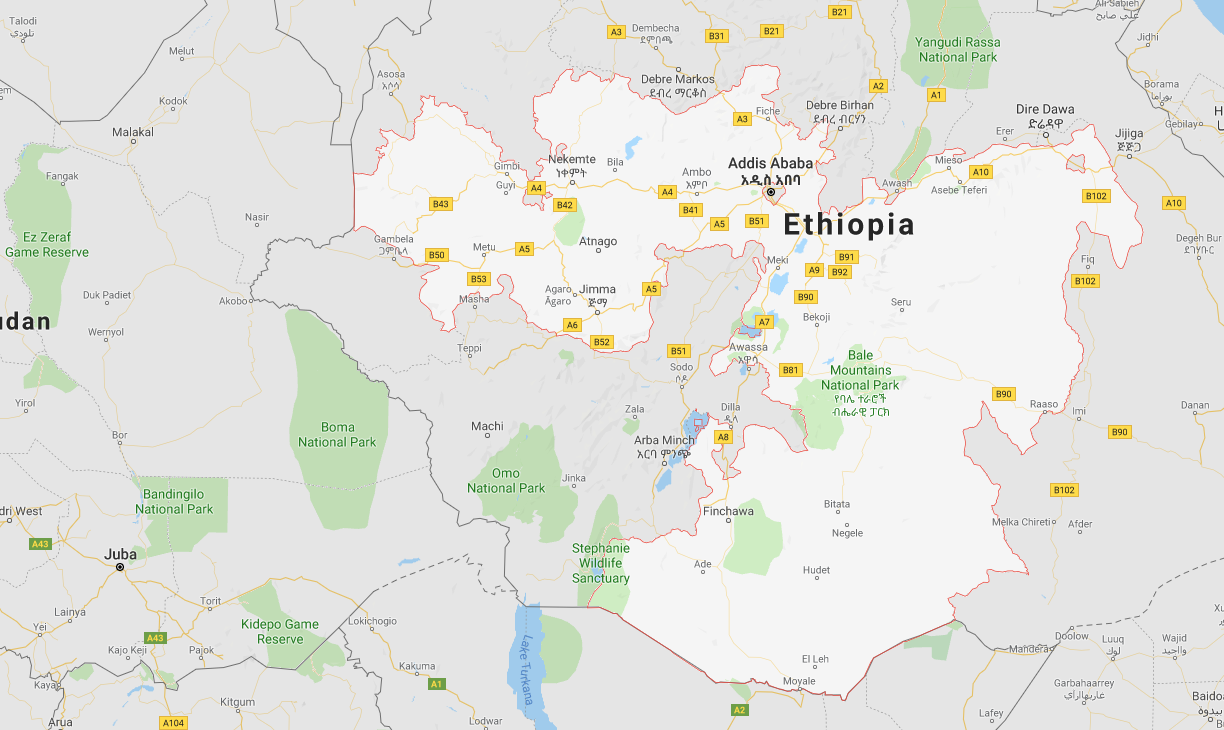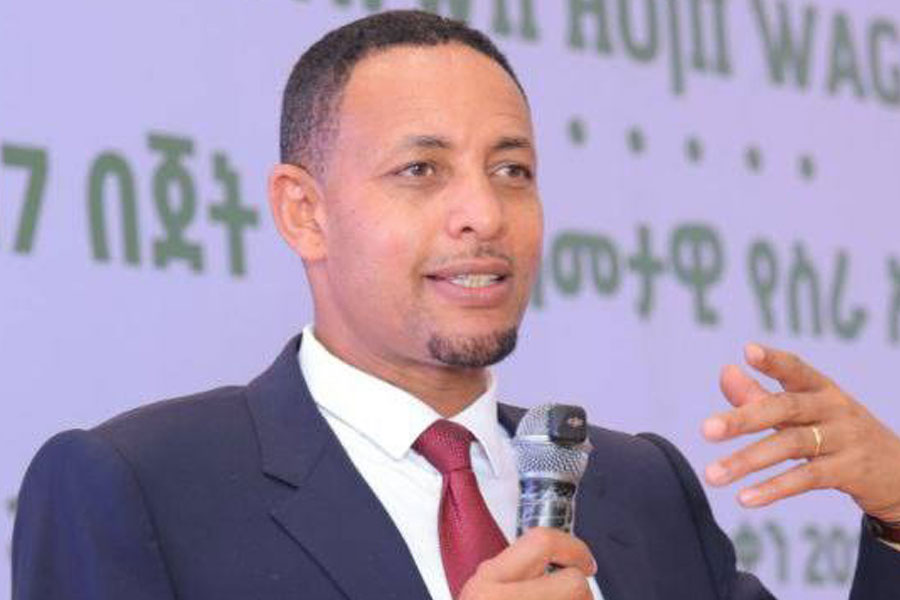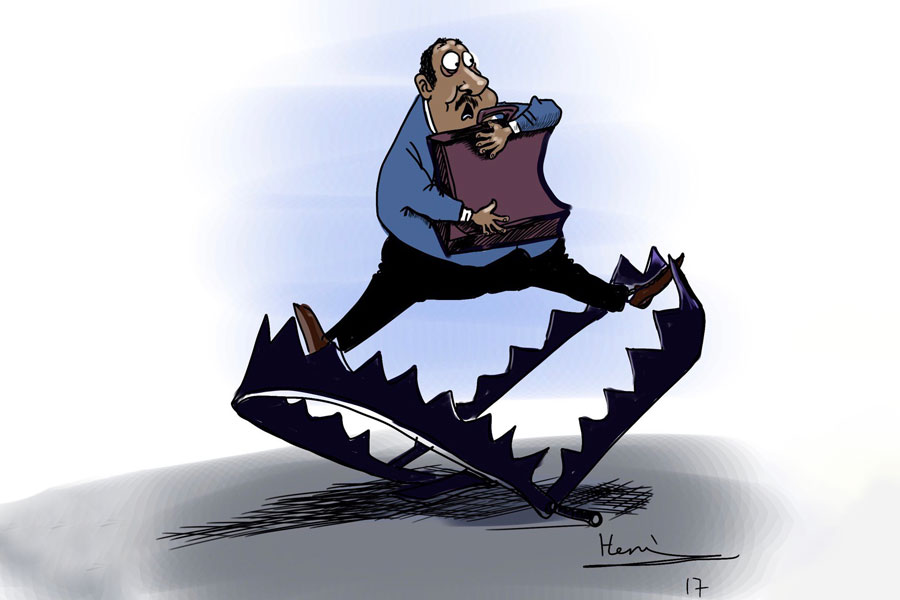
Fortune News | Oct 19,2019
Oct 16 , 2020
By Halima Abate (MD)
In the sphere of administration and leadership, creating clear concepts, establishing efficiency as a guiding principle, and knowing how various actions might lead to efficiency keep the organisation dynamic and stable. No less important is focusing on decision-making processes that create activity.
However, a series of vested interests might challenge the momentum. We see this in almost every challenge that is out there. This has led to a lack of organisational entrepreneurship. The impact of this has been a major hurdle, making itself felt across industries and sectors. It has led to a lack of market confidence reflected in reluctance to embark on bold financial investments in the face of future volatility, uncertainty and lack of accountability.
Concurrently, there is also a serious concern regarding leadership, in which organisation leaders are being pressured to do more with less. They are also being tempted to change the ways in which structural arrangements, rules, standard operating procedures and relations with key stakeholders coalesce as a synergy. The question of how to reform the existing organisation has assumed greater urgency.
Efforts to change the organisational performance and maintain the existing strong dynamics reveals the fact that adjustment is a complex process involving a multitude of forces and agents. The role of organisational actors in this is crucial. The notion of organisational entrepreneurship - ranging from the emergence of such entrepreneurs to the implementation and possible institutionalisation of the changes they initiate – is an alternative model to follow. Actors who initiate changes that contribute to transforming the existing status quo - organisational entrepreneurs - contribute to changing the institution despite pressures toward stasis.
Transforming organisational arrangements to rational bureaucracy, leveraging resources to effectively change behaviours at both macro and micro levels and, on some occasions, reinventing the “rules of the game” are the most important approaches. Entrepreneur actors will use their position as an enabling environment for the organisation with an array of quality services that promote legitimacy and ability to enhance diverse stakeholders’ involvement.
This is easier said than done. The inertia that the average organisation is faced with are multidimensional. This can come from the burden placed by way of a lack of resources. It can be a company culture that disincentivises innovation and solidarity among members. It takes nothing less than a whole new way of thinking for the entrepreneurs across the organisation to forge ahead with significant innovative solutions to pending problems that, on the whole, are capable of changing the internal fabric of the organisations.
The entrepreneurs should build on optimistic and inspirational thoughts and pass that vision in a comprehensive way down the hierarchy. Working with imagination, insight and confidence are necessary requirements. But perhaps the most relevant talent an organisation can hope for is creating a common sense of purpose with the employees. Interconnectedness and working harmony between the leader and the team, where the whole is greater than the sum of its parts, is the surest way of keeping the desired vision alive throughout the entire creative process.
The case for Ethiopia is urgent. We need organisational entrepreneurs that initiate and actively participate in the implementation and exercise of changes that diverge from the existing practice, change the institutional environment, and ascertain whether the changes were successfully implemented. Such changes might be initiated within the boundaries of an organisation or within the broader institutional context, within which the actors are embedded and can create a new venture.
In a country where institutions are built around the person of - usually - the owner, this could be hard. Changing culture requires a great deal of interpersonal renegotiation, and hard choices will need to be made. Where survival is the issue, indeed, this should not be an obstacle.
PUBLISHED ON
Oct 16,2020 [ VOL
21 , NO
1068]


Fortune News | Oct 19,2019

In-Picture | May 04,2025

Fortune News | Aug 17,2025

Sunday with Eden | Dec 07,2019

Radar | Apr 27,2025

Films Review | Jul 10,2020

Sunday with Eden | Apr 03,2021

Life Matters | Sep 21,2024

Radar | Jan 16,2021

Editorial | Oct 20,2024

Photo Gallery | 177673 Views | May 06,2019

Photo Gallery | 167886 Views | Apr 26,2019

Photo Gallery | 158561 Views | Oct 06,2021

My Opinion | 136994 Views | Aug 14,2021
Commentaries | Oct 25,2025

Dec 22 , 2024 . By TIZITA SHEWAFERAW
Charged with transforming colossal state-owned enterprises into modern and competitiv...

Aug 18 , 2024 . By AKSAH ITALO
Although predictable Yonas Zerihun's job in the ride-hailing service is not immune to...

Jul 28 , 2024 . By TIZITA SHEWAFERAW
Unhabitual, perhaps too many, Samuel Gebreyohannes, 38, used to occasionally enjoy a couple of beers at breakfast. However, he recently swit...

Jul 13 , 2024 . By AKSAH ITALO
Investors who rely on tractors, trucks, and field vehicles for commuting, transporting commodities, and f...

Oct 25 , 2025
The regulatory machinery is on overdrive. In only two years, no fewer than 35 new pro...

Oct 18 , 2025
The political establishment, notably the ruling party and its top brass, has become p...

Oct 11 , 2025
Ladislas Farago, a roving Associated Press (AP) correspondent, arrived in Ethiopia in...

Oct 4 , 2025
Eyob Tekalegn (PhD) had been in the Governor's chair for only weeks when, on Septembe...

Oct 25 , 2025 . By YITBAREK GETACHEW
Officials of the Addis Abeba's Education Bureau have embarked on an ambitious experim...

Oct 26 , 2025 . By YITBAREK GETACHEW
The federal government is making a landmark shift in its investment incentive regime...

Oct 27 , 2025
The National Bank of Ethiopia (NBE) is preparing to issue a directive that will funda...

Oct 26 , 2025 . By SURAFEL MULUGETA
A community of booksellers shadowing the Ethiopian National Theatre has been jolted b...